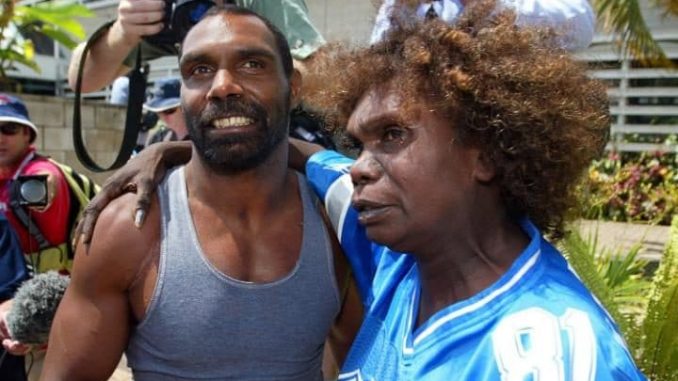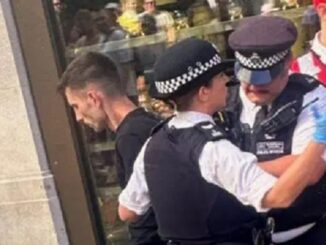
By
Several hundred Aborigines on a remote island in Australia are seeking compensation for the racist actions of the police in a landmark £23 million class action that has been likened to Germany’s reparations to Holocaust victims.
In an unusual move, Australia’s Federal Court has given notice to the indigenous residents of Palm Island – a tropical island off the north-east coast – that they can seek to claim damages for the racist conduct of the Queensland state police during riots there in 2004. The notice says any Aboriginal person living on the island between November 19 2004 and March 25 2010 who was “affected by the police response” may be entitled to compensation. About 95 per cent of the community’s 3,000-odd population is indigenous. Stewart Levitt, a lawyer acting for the community, said he believed the action on behalf of an entire community was unprecedented in Australia, and possibly the world. He said he expected up to 400 people to be entitled to compensation and about 320 had already registered to join the action.

Australian activists protesting for Mulrunji’s justice at Sydney’s Townhall, 22 June 2007 Credit: AFP
“I can’t think of anything similar where the entire population of a town or an enclave has brought an action such as this,” he told The Telegraph.
“It is probably without much precedent in the world, perhaps the closest comparison is to the reparations to the Jews at the end of World War II… The way in which black people were treated on Palm Island was so out of kilter compared to how a situation would have been handled in a Brisbane suburb occupied by white Australians.”

During the ensuing unrest, authorities flew teams of armed riot police to the island and declared an effective state of emergency. Wearing balaclavas and bearing firearms, the police raided multiple homes and allegedly held pregnant women and children at gunpoint. Of sixteen people eventually charged, eleven were acquitted.
The Federal Court found in December that police had breached the racial discrimination act, ruling that they conducted the operation “very much with an ‘us and them’ attitude”. The court said police would have had acted differently “if this tragedy occurred in a remote, close-knit, but overwhelmingly non-Aboriginal community”.
“I have found they [police officers] conducted themselves… with a sense of impunity, impervious to the reactions of Palm Islanders,” wrote Justice Debbie Mortimer.
“I have found that police acted in these ways because they were dealing with an Aboriginal community.”
The decision granted compensation to Lex Wotton, an islander who was jailed for inciting violence, as well as his wife and mother. The three received £127,000 in compensation, plus £125,000 in interest. The ruling paved the way for all islanders affected by the police conduct to seek compensation. They have now been given until June 30 to apply. Hearings on the class action are due later this year but the Queensland state government may seek to settle the matter and set up a tribunal to determine payouts.
Mr Levitt said claimants need to have been directly affected by the police conduct. He said this could include those impeded by a travel ban or those suffering psychological injury or post-traumatic stress disorder.
“It is not simply living there – you have to have been affected in some way that was detrimental,” he said.
“An infusion [of funds] would make an enormous difference to the community… These people are impoverished at the moment. There is no industry there, there is no taxi service, minimal public transport, minimal health service. It is a third-world suburb in a first-world city.”
Source telegraph.co.uk





Be the first to comment